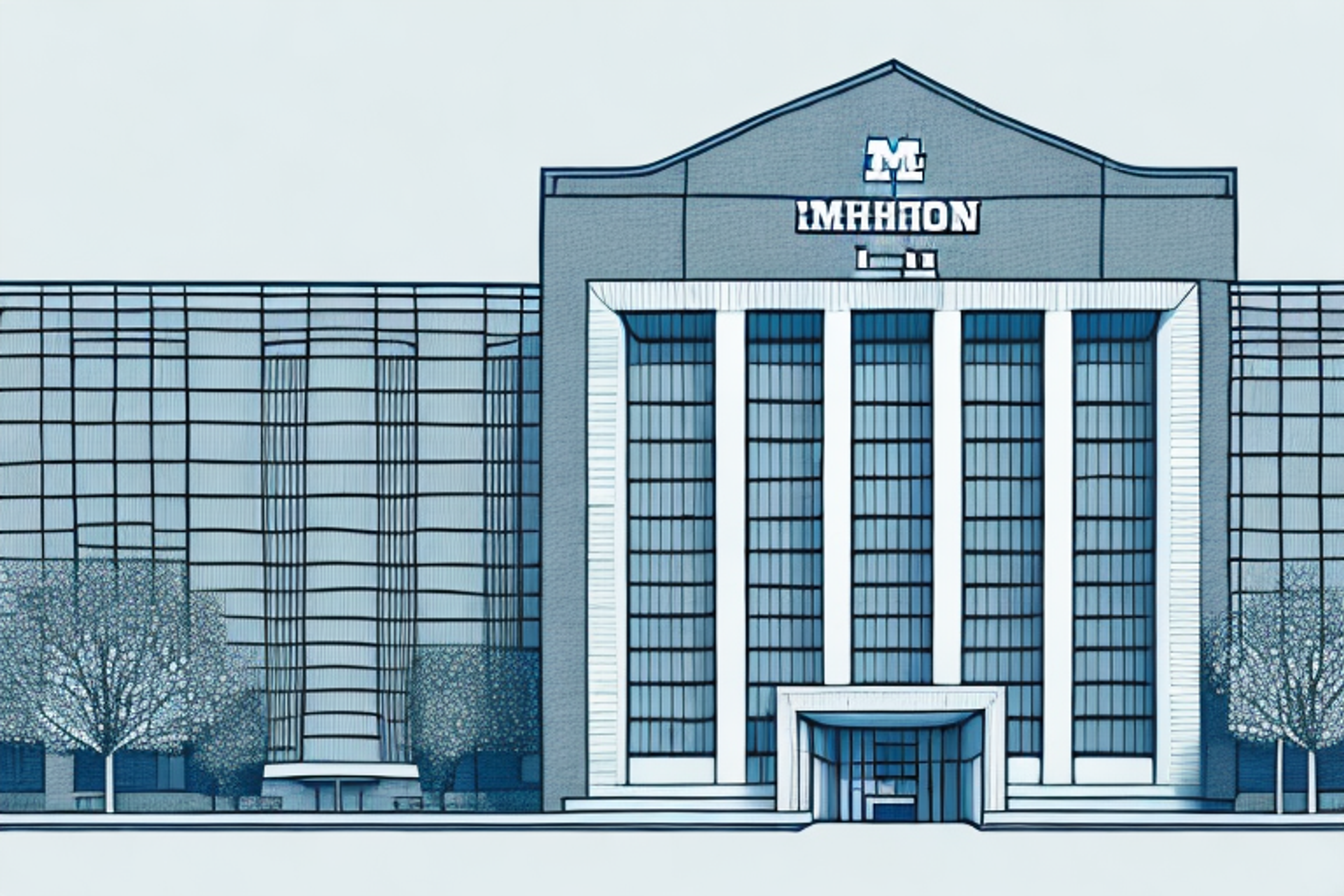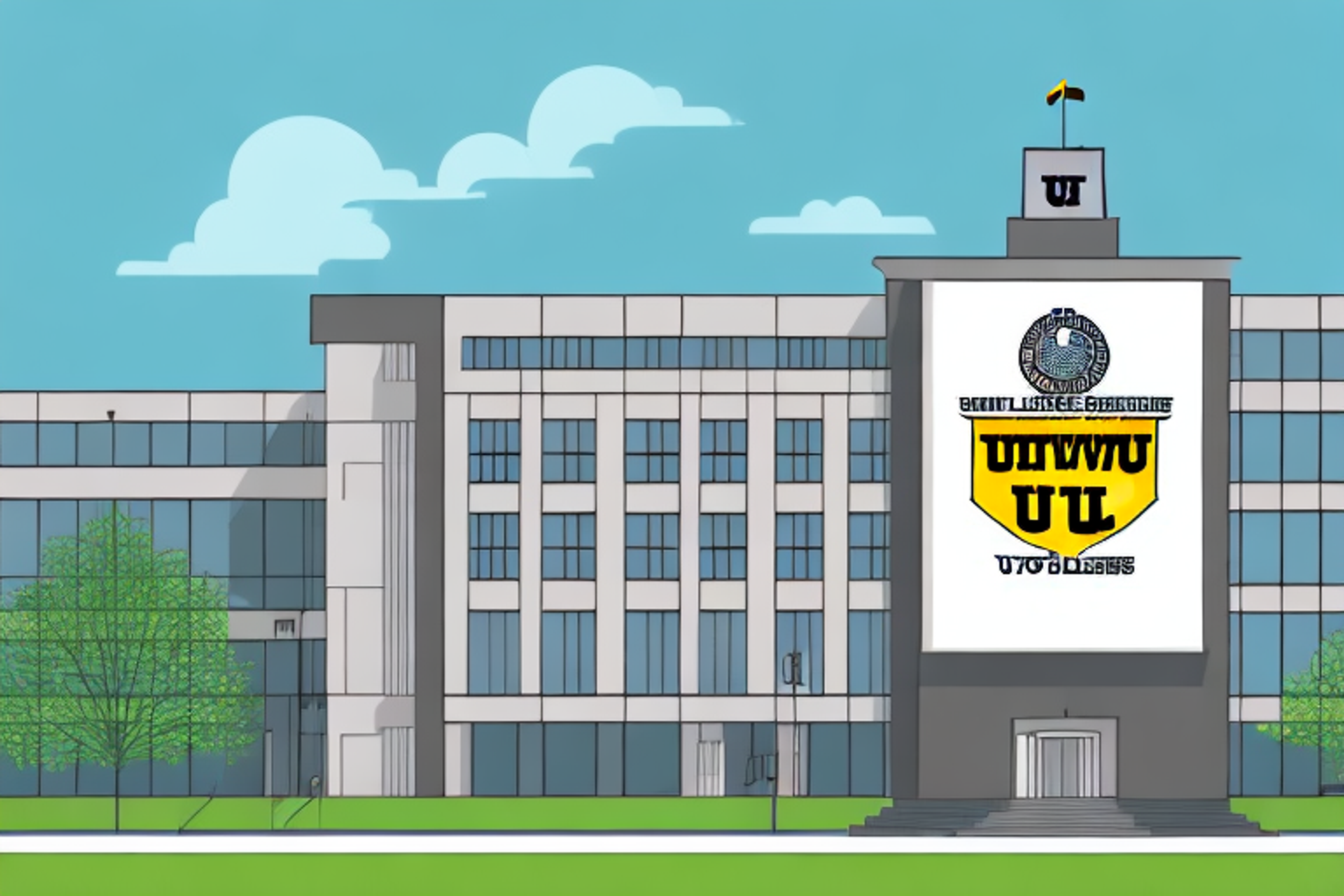A Guide to the University of Michigan--Ann Arbor Law School Interview Process
If you're considering applying to the University of Michigan--Ann Arbor Law School, you'll want to read our comprehensive guide to the interview process.
Posted March 6, 2025

Table of Contents
Free Event

Featuring Indrani S.
Law School App Office Hours with a Former Stanford AdCom Member
Starting Thursday, April 17
11:30 PM UTC · 45 minutes

Featuring Indrani S.
Attending a law school interview can be a nerve-wracking experience, and the University of Michigan--Ann Arbor Law School interview process is no different. However, with the right preparation and mindset, you can make a lasting impression on the admissions committee. In this guide, we will cover everything you need to know about the interview process, including tips on how to prepare, common questions asked, appropriate attire, etiquette to follow, and much more!
Preparing for the Interview: Tips and Tricks
One of the best ways to ace your law school interview is to prepare, prepare, prepare. Start by researching the school's website and familiarizing yourself with the school's mission, values, and academic programs. Additionally, review your application materials and rehearse your responses to common questions. Reach out to current students or alumni for more insights about the school and the interview process. Finally, make sure to practice your nonverbal communication, such as your posture, eye contact, and tone of voice.
Another important aspect of preparing for a law school interview is to research the interviewer. Find out who will be conducting the interview and learn about their background and interests. This can help you tailor your responses and make a connection with the interviewer. Additionally, consider preparing a list of questions to ask the interviewer about the school and their experience.
It's also important to dress appropriately for the interview. Dress in professional attire that is comfortable and reflects your personal style. Make sure your clothes are clean, pressed, and fit well. Avoid wearing anything too flashy or distracting, as you want the focus to be on your qualifications and responses.
Common Questions Asked During the Interview
During the interview, the admissions committee will ask you various questions to gauge your academic preparedness, legal skills, and personal characteristics. Some of the common questions asked include:
- Why do you want to attend the University of Michigan--Ann Arbor Law School?
- What are your strengths and weaknesses?
- Can you tell me about a legal issue that you find interesting and why?
- What experience do you have that would make you a good fit for law school?
- How do you handle stress and difficult situations?
Aside from the questions mentioned above, the admissions committee may also ask you about your extracurricular activities and community involvement. They may want to know how you spend your free time and how you contribute to society. This is because law schools are not only interested in academic excellence but also in well-rounded individuals who can make a positive impact in their communities.
Another common question that may be asked during the interview is about your long-term career goals. The admissions committee may want to know what you plan to do after law school and how attending their institution can help you achieve those goals. It is important to have a clear idea of your career aspirations and how law school fits into your overall plan.
Dress Code for the Law School Interview
It's essential to dress appropriately for your law school interview, as it conveys your professionalism and attention to detail. For men, a suit and tie are recommended, while women can wear a suit or a dress with a blazer. Avoid trendy or revealing outfits. Keep your accessories and makeup minimal and ensure that your shoes are polished and comfortable.
In addition to dressing appropriately, it's also important to arrive on time and be well-prepared for your interview. Research the law school beforehand and be ready to discuss why you're interested in attending. Bring a copy of your resume and any relevant documents, such as transcripts or writing samples. Practice answering common interview questions with a friend or family member to feel more confident and prepared on the day of the interview.
Etiquette to Follow During the Interview
During the interview, it's crucial to follow basic etiquette to make a positive impression. Some of the key etiquette to follow include:
- Arrive early and ensure that you know the location and time of the interview
- Turn off your phone before the interview
- Greet the interviewer with a firm handshake and maintain eye contact throughout the interview
- Listen attentively to the questions and answer them honestly and concisely
- Show appreciation to the interviewer for the opportunity to interview
Another important etiquette to follow during the interview is to dress appropriately. Dressing professionally shows that you take the interview seriously and respect the interviewer's time. It's better to be overdressed than underdressed, so make sure to wear clean and ironed clothes. Additionally, avoid wearing strong perfumes or colognes as it may distract the interviewer or cause allergies.
Importance of Researching About the School and Program
Researching the University of Michigan--Ann Arbor Law School and its programs is critical in demonstrating your interest in the school and its values. Showing that you took the time to learn more about the school will make a positive impression on the admissions committee. You can research the school's website, publications, alumni network, and social media channels to get more insights.
Moreover, researching about the school and program can also help you determine if it is the right fit for you. By learning about the curriculum, faculty, and resources available, you can assess if the program aligns with your academic and career goals. Additionally, researching about the school's culture and community can give you a sense of the student body and the overall atmosphere of the campus.
Furthermore, conducting research about the school and program can also help you prepare for the application process. By understanding the admission requirements, deadlines, and expectations, you can tailor your application to showcase your strengths and qualifications. You can also use the information you gather to craft a compelling personal statement that highlights your fit with the school and program.
Insider Tips from Law School Admissions Experts
Law school admissions experts offer valuable insights about the interview process and what the admissions committee looks for in candidates. Some of the tips include:
- Be authentic and showcase your unique qualities and experiences
- Highlight your academic achievements and qualifications
- Show that you have a clear understanding of your career goals
- Demonstrate your passion for law and the legal profession
- Engage with the interviewer and ask questions to show your interest in the school
Another important tip from law school admissions experts is to research the school thoroughly before the interview. This includes understanding the school's mission, values, and curriculum. By doing so, you can tailor your responses to align with the school's values and demonstrate your fit with the program. Additionally, it's important to be prepared to discuss any weaknesses in your application, such as a low GPA or LSAT score. Be honest about these weaknesses, but also explain how you have worked to overcome them and why you are still a strong candidate for the program.
The Role of the Interview in the Admissions Process
The law school interview is an essential component of the admissions process, as it allows the admissions committee to assess your readiness for the rigorous academic program and legal profession. The interview panel will evaluate your communication skills, legal knowledge, problem-solving abilities, and personal characteristics, among other factors.
Additionally, the interview provides an opportunity for you to learn more about the law school and its culture. You can ask questions about the curriculum, extracurricular activities, and career services. This information can help you make an informed decision about whether the law school is the right fit for you. It is important to come prepared with thoughtful questions and to engage in a professional and respectful manner during the interview.
How to Make a Great First Impression in Your Interview
Making a great first impression is crucial in setting the tone for the interview. Here are some tips on how to do it:
- Dress professionally and arrive early
- Smile and maintain eye contact with the interviewer
- Offer a firm handshake when greeting the interviewer
- Speak clearly and confidently
- Show enthusiasm and passion for law and the school
- Display your knowledge of the school and its programs
Another important aspect of making a great first impression in your interview is to be prepared to answer common interview questions. Research common interview questions and practice your responses beforehand. This will help you feel more confident and prepared during the interview. Additionally, be sure to bring copies of your resume and any other relevant documents, such as writing samples or transcripts, to the interview. This shows that you are organized and prepared, and it also gives the interviewer a chance to review your qualifications in more detail.
Behavioral Question Examples and How to Answer Them
Behavioral questions are designed to assess your past behavior and actions in various settings. Here are some examples of behavioral questions and how to answer them:
- Tell me about a time when you had to solve a complex problem.
- Can you describe a situation where you had to work with a difficult colleague?
- Give an example of a time when you had to make a tough decision.
- Can you tell me about a project you completed that you're particularly proud of?
It's important to remember that when answering behavioral questions, you should use the STAR method: Situation, Task, Action, and Result. This means that you should describe the situation you were in, the task you needed to accomplish, the action you took, and the result of your actions. By using this method, you can provide a clear and concise answer that highlights your skills and experience.
How to Highlight Relevant Professional Experience in Your Interview
Professional experience can be a significant factor in law school admissions. Here's how to highlight your relevant professional experience during the interview:
- Describe your professional experiences in a concise and structured manner
- Show the relevance of your experience to the legal profession and law school
- Explain how your experience has helped you develop the skills required for law school
- Highlight any leadership positions or accomplishments during your professional experience
Articulating Your Interest in Michigan--Ann Arbor Law School
One of the primary goals of the law school interview is to showcase your interest in the University of Michigan--Ann Arbor Law School. Here are some tips on how to articulate your interest:
- Explain why the school's values and mission align with your personal and professional goals
- Highlight how the school's programs and resources can help you achieve your career objectives
- Describe any specific faculty or student groups that interest you
- Show that you have researched the school's curriculum and legal clinics
How to Talk About Your Future Career Goals During the Interview
Finally, discussing your future career goals is a crucial component of the interview process. Here's how to talk about your goals effectively:
- Discuss your long-term career aspirations and how law school can help you achieve them
- Explain how your previous experiences have influenced your career goals
- Show that you have researched the legal market and job opportunities
- Discuss any specific areas of law that you are interested in pursuing
With these tips in mind, you'll be well-prepared for your University of Michigan--Ann Arbor Law School interview and ready to make a strong impression on the admissions committee. Good luck!










